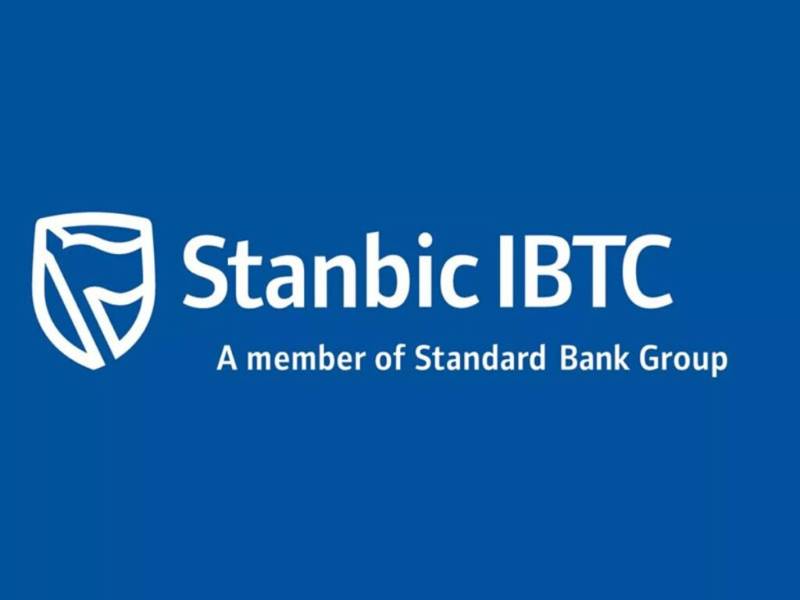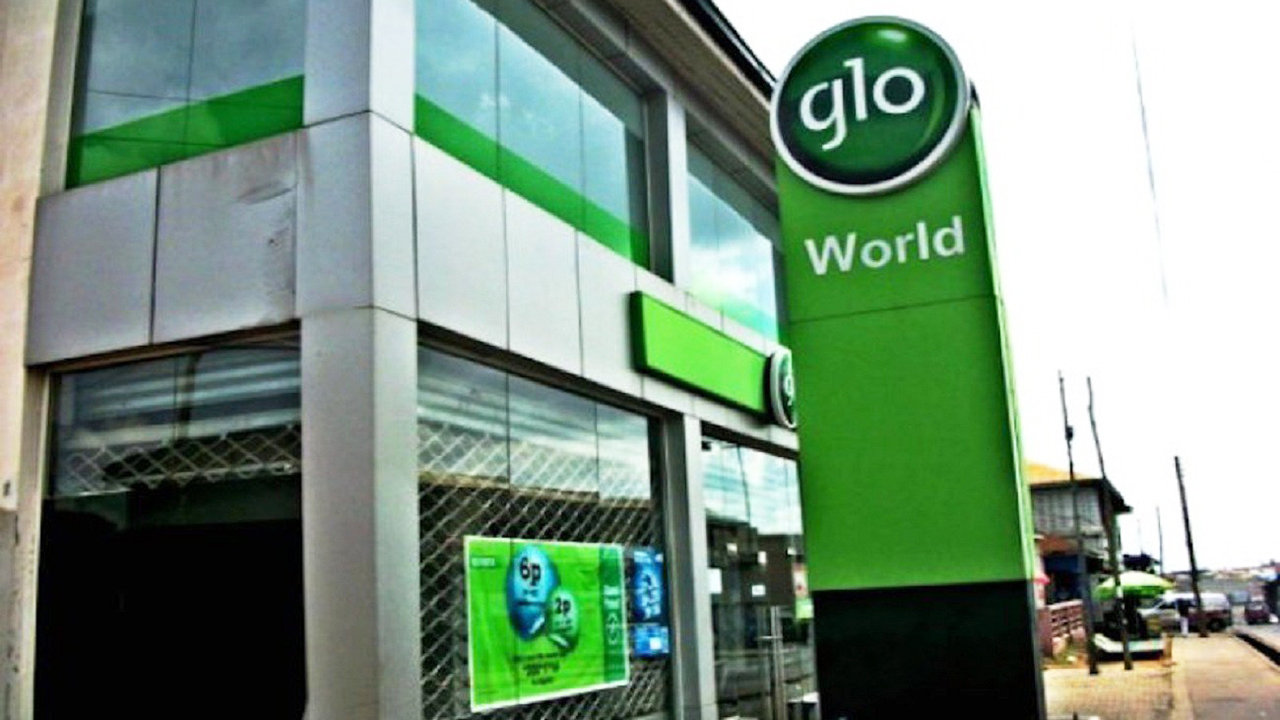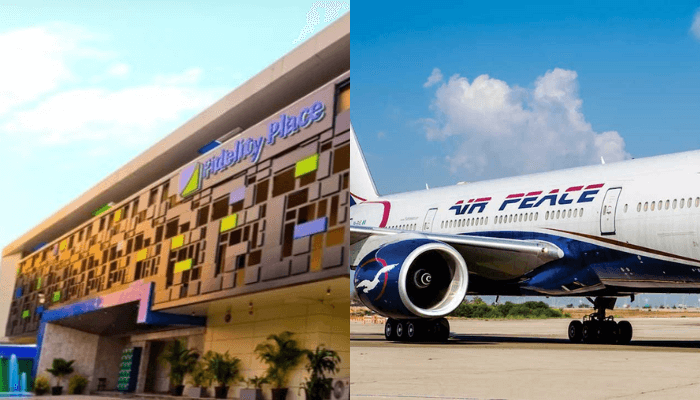Business
Stanbic IBTC Set to Host 2022 Africa-China Trade Expo

Stanbic IBTC Holdings PLC, a member of Standard Bank Group, would host the 2022 Stanbic IBTC Africa China Trade Expo as part of its efforts at promoting trans-regional trade and development between Nigeria and China. The trade expo would feature a panel discussion, masterclasses on trade, a presentation on the Stanbic IBTC Africa China Trade Solutions and a fully virtual exhibition.
The two-day hybrid conference and exhibition-themed “Synergy For Growth’ is slated for 10 and 11 August 2022, and is geared at providing insights and opportunities for participants. The event would serve as an avenue to showcase Nigerian and Chinese exhibitors, and would as well provide opportunities to build relationships within the trade community.
The physical conference is planned to feature keynote speeches and panel discussions by highly experienced subject matter experts and thought leaders in relevant industries and would be an opportunity for exporters and importers to engage and create a marketplace experience.
Speakers slated for the event include Philip Myburgh, Head, Pan-African China Banking, Standard Bank Group; and Ade Otukomaya, Head, Africa China Banking, Stanbic IBTC Bank. Others are Remy Osuagwu, Executive Director, Business and Commercial Clients, Stanbic IBTC Bank; and Wole Adeniyi, Chief Executive, Stanbic IBTC Bank PLC.
The panel discussion, with the theme ‘Promoting Export Activities through Synergy’, would have Samuel Oyeyipo, Deputy Director and Regional Coordinator, Nigerian Export Promotion Council, South West Regional Office, Lagos; Luthando Vuda, Head, Africa China Trade in Business and Commercial Clients, Standard Bank Group; Jane He, Business Manager, Pan Africa China Banking, Business and Commercial Clients, Standard Bank Group, Fola Abimbola, Analyst, Senior, Frontier Africa Equity Research Stanbic IBTC; and Victor Ayemere, Chief Executive, Zeenab Foods Limited, Operators of the Nigeria Export Trade House China/Far East Region as panelists.
Dr Demola Sogunle, Chief Executive, Stanbic IBTC Holdings, spoke on the rationale for the conference. He highlighted that the Stanbic IBTC Africa-ChinaTrade Expo hybrid Conference and Exhibition would be geared at showcasing Nigeria and China trade opportunities while emphasizing the role of Stanbic IBTC in facilitating inter-regional trade.
“China is Africa’s biggest trading partner by far and can foster strong trade routes and economies of scale, offering an incredible opportunity to do more than just import goods. With the emphasis on building strong synergy and relationship between China and Nigeria, the Stanbic IBTC Africa-China Trade Expo is expected to provide insights into Nigeria and China trade relations and the role of Stanbic IBTC as a facilitator of inter-regional trade, as well as provide advisory services, allowing trade partners access and unlock the opportunities in Nigeria-China trade,” Demola said.
“The topics for discourse at the two-day hybrid conference and exhibition would centre on building synergy between Nigeria and China’s economies, building synergy between government agencies and driving export activities through policies and initiatives. Other topics would include building export activities in partnership with Stanbic IBTC and promoting competitive advantage for enhancing export.”
“The exhibition would also showcase vendors who export from Nigeria to China and vice versa, spanning across agriculture, manufacturing, equipment, processing and packaging firms,” Demola added.
The Chief Executive noted that through its Africa China Trade Solution (ACTS) and other networks of relations between Africa and China, the financial service provider continued to facilitate economic trade and development between Africa and the Asian country.
Stanbic IBTC’s trade solutions such as Stanbic IBTC Africa China Trade Solutions (ACTS) continued to enable settlement of international transactions and mitigation of payment risk while providing regional solutions such as issuance of payment guarantees and letters of credit to Nigerian exporters.
Business
FirstBank Partners Verve to Issue Free Debit Cards in Nationwide Promo

First Bank of Nigeria Limited (FirstBank), Nigeria’s premier and leading financial inclusion services provider, has announced the launch of the Verve Flash Promo, a special initiative rewarding customers with free Verve cards.
The campaign, which commenced on 6 October 2025, and will run until 30 January 2026, is exclusively targeted at FirstBank customers whose ATM cards have expired.
The free cards will be issued daily to 131 customers on a first-come, first-served basis across the Bank’s branches, nationwide. FirstBank’s unwavering commitment to convenience, accessibility, and customer satisfaction.
Speaking on the rewards to FirstBank customers, Chuma Ezirim, the Group Executive, e-Business and Retail Products at FirstBank, said: “The Verve Flash Promo is not just about rewarding customers with free verve debit cards; it is about celebrating our legacy of 131 years of trust, resilience, and innovation in the Nigerian financial services industry. At FirstBank, we remain committed to providing customer-centric solutions that enable secure, seamless, and convenient payment experiences. Partnering with Verve International on these initiatives, including the Verve Good Life promo, underscores our shared vision of deepening financial inclusion while rewarding our loyal customers for their continuous patronage.”
Also commenting, Vincent Ogbunude, Managing Director, Verve International, noted:
“Through strategic collaborations like this with FirstBank, we continue to demonstrate Verve’s commitment to enhancing access to seamless payment solutions for every Nigerian. The Verve Flash Promo not only rewards loyal customers but also reinforces our vision of making everyday transactions more rewarding, secure, and convenient. As we extend the Good Life Promo, we remain steadfast in our goal of deepening financial inclusion while delivering real value to Verve cardholders across the country.”
Meanwhile, the ongoing Verve Good Life promo, designed to reward Verve debit card holders for using their cards at specific merchant points, has been extended to 30 November 2025.
During the period, Verve Card holders enjoy 10% cashback at The Place Restaurant, Quickteller, Buypower, Filmhouse, AlliExpress, Addide Supermarkets, and Chowdeck app every Thursday to Sunday.
Verve cardholders can now enjoy a 10% cashback on the Google Play Store any day of the week throughout the Good Life Promo, which runs until 30 November 2025. Moreso, every transaction made with a Verve card whether on ATMs, POS terminals, or online platforms automatically earns customers a chance to win up to ₦1,000,000.
Business
Glo Enhances Data Bundles, Offers More Data at No Extra Cost

Nigeria’s leading telecommunications company, Globacom, has announced enhancement of its data bundles to give subscribers more data volume at the same affordable prices.
The upgrade reinforces the company’s commitment to providing superior value and exceptional customer satisfaction.
The upgraded Glo Data Bundles are enhanced versions of the existing daily, weekly, and monthly plans, giving subscribers more data at no additional cost.
These improvements offer users greater freedom and convenience to enjoy their favourite online activities from streaming and gaming to social media, video calls, and more.
For daily users, the ₦100 plan has been upgraded from 105MB to 125MB, giving light internet users even more data to browse, chat, and stream short videos conveniently.
The weekly bundles have also received notable boosts, such as the ₦1,500 plan, which now offers 6GB instead of 5.9GB, enabling subscribers to stay connected longer.
Heavy data consumers will also enjoy remarkable value on the monthly plans. The ₦2,000 bundle now gives 6.25GB, while the ₦10,000 package has been enhanced from 38GB to 42GB, allowing users to do more from video streaming and large file downloads to remote work and virtual meetings.
Students are not left out, as the Campus Booster Plan has been upgraded with higher data allowances, ensuring seamless access to academic resources and social networks while on campus.
Globacom noted that the revised bundles are available to all Glo customers prepaid, postpaid, and hybrid and can be activated by dialing *312#, using the Glo Café app (available on Android and iOS), or visiting hsi.glo.com.
The company added that subscribers can use, share, or gift data through *312# or the Glo Café app. Customers will also continue to receive data usage alerts at 75% and 100% consumption levels to help monitor usage effectively.
Unused data is automatically rolled over upon renewal before expiry or when a new plan is purchased within the grace period (ranging from one to seven days, depending on the plan).
Globacom reaffirmed its commitment to empowering Nigerians with reliable and affordable data access, urging customers to take advantage of the revised data bundles that combine affordability, quality, and more browsing power ensuring every Glo subscriber enjoys more data without paying more.
Business
Maiden Flight to Heathrow Airport: Fidelity Bank Hails Air Peace

Fidelity Bank Plc has congratulated Air Peace on the successful launch of its maiden direct flight from Lagos to London Heathrow, describing the milestone as a significant achievement for Nigeria’s aviation sector and a testament to the power of indigenous partnerships.
The commendation was delivered by Dr. Nneka Onyeali-Ikpe, managing director of Fidelity Bank, during a special event held in Lagos to celebrate the airline’s expansion into the European market.
“This is not just a win for Air Peace, but a win for Nigeria,” Onyeali-Ikpe said. “It reflects the strength of home-grown businesses and the impact of strategic financial support in enabling national champions to thrive on the global stage.”
Nigeria CommunicationsWeek reports that Fidelity Bank has played a pivotal role in Air Peace’s growth, providing early financial backing and advisory services that helped the airline become the largest carrier in West Africa. The bank continues to support Air Peace through payment processing and other financial services
The launch of the London route marks a new chapter for Air Peace, which now joins a select group of African airlines operating direct flights to Heathrow.
The development is expected to boost tourism, trade, and connectivity between Nigeria and the United Kingdom.
Speaking at the event, Allen Onyema, Chairman of Air Peace, expressed gratitude to Fidelity Bank for its unwavering support and reaffirmed the airline’s commitment to excellence and service.
“This partnership has been instrumental in our journey,” Onyema said. “We are proud to fly the Nigerian flag across international skies.”
Industry stakeholders present at the event praised the collaboration between the two companies as a model for sustainable business growth and national development.






